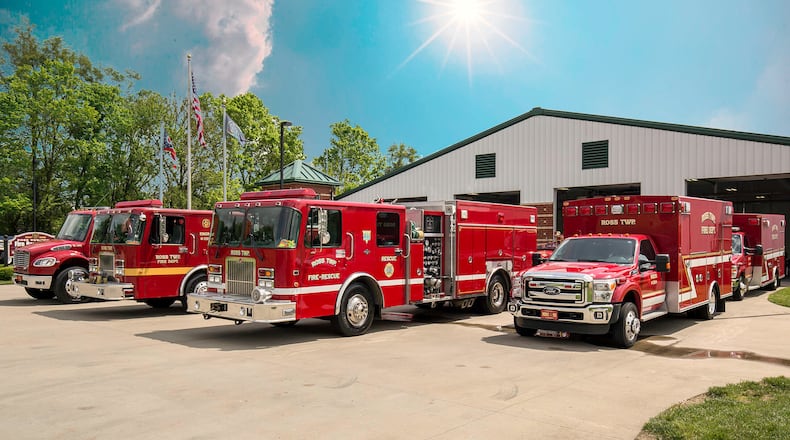“This will change the trajectory we head in,’’ said fire Chief Christopher Johns.
The chief said he won’t be hiring any fulltime firefighters next year as he had hoped to and will have a one-year buffer to figure things out with trustees, which include newly elected trustee Don Bennett, Fairfield’s former fire chief; and Andrea Hatten, the chief administrator for the Hamilton County Coroner’s Office.
Johns said he and trustees have some time to make decisions on the department’s future because there is one more year of collections on a 3-mlll levy that expires at the end of 2026, according to Julie Joyce-Smith, Ross Twp.’s fiscal officer. A 2.75-mill levy was renewed last year. Together, they bring $1.1 million to the fire department coffers annually.
Those would have been rescinded had voters renewed Tuesday’s 6.5-mill levy, Johns said.
“There will be difficult conversations ahead,” Johns said. “We might not have educated the public enough on the issue or our need.”
Those conversations include whether to put the same issue back on the ballot next spring or fall. They could also include the possibility of closing a fire station to save costs. Doing so would impact response time negatively “and time is critical when responding,” Johns said.
“We only have two fire stations — one in the north and one in the south. We don’t have one in the center of the township. How do you pick a firehouse to close when (response) time is critical? It’s not fair to the people.”
Trustee Keith Ballauer, whose term on the board ends in December, said election results would likely be discussed at Thursday’s trustees’ meeting.
The tax increase to voters with approval of the levy would have been only be .75-mills once the two existing levies were rescinded, Joyce-Smith said. The tax on a $100,000 home would have increased from $102.50 annually to $227.50 annually.
That money, if approved, would have kept the department in the black, pay for the hiring of one or two fulltime firefighters next year, and be used to replace aging equipment as needed.
By year’s end, the fire department will have spent its carryover balance and faces a $200,000 deficit by the end of 2026 without extra dollars, Joyce-Smith said.
Two extra fulltime firefighters would have allowed two career firefighters to be assigned to each shift. Currently, there are four fulltime firefighters plus the chief along with 40 part-time firefighters to staff its two stations.
Johns said it is sometimes difficult to fill shifts with part-time staff, 80 percent of whom have fulltime firefighter positions in other jurisdictions. Often, Johns said, part-time firefighters cancel their shifts if their fulltime jobs need them.
At the same time the department is having staffing issues, calls for service are increasing.
Calls went from 1,278 in 2023 to 1,497 last year. By mid-September last year, the department had responded to 984 calls for service. This year at the same time the department responded to 1,110 calls.
The additional money from the levy will also have helped pay for replacement of an ambulance next year and an aging pumper down the road. Stretchers in three ambulances also need to be replaced.
About the Author
